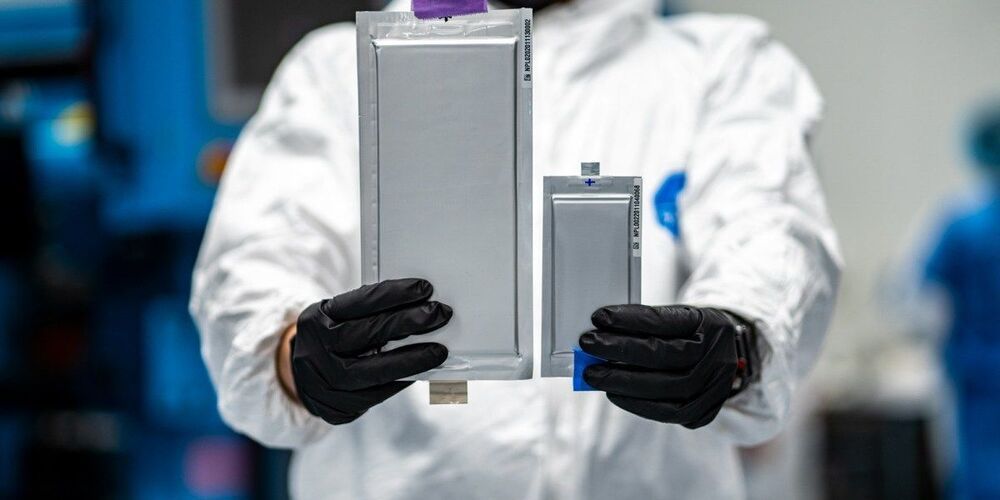“What our technology does is it improves range and lowers vehicle cost,” Campbell said. “It’s as simple as that.”
As the name of his company suggests, Campbell thinks the key is a more-solid electric car battery. The lithium-ion batteries powering almost all of today’s electric vehicles rely on a liquid electrolyte, which ferries charged ions from a cathode to an anode. While the technology makes it practical to charge and recharge, the liquid can catch fire if overloaded.
For decades, scientists have seen a potential answer in solid electrolytes, which could allow a battery to soak up more energy without overheating.

Insufficient Power Grid to support future of electric vehicles.
Last year the major auto makers witnessed a Volt vehicle with a retrofit new battery drive round trip between San Francisco and Los Angeles, at normal highway speeds, on less than a single charge.
All research on new passenger car engine funding ceased. New Electrical Engineers hiring in full swing.
The Tesla vehicles out-petform gas vehicles. See Youtube videos with keywords:Tesla drag race
However, the rooftop area of the average home is insufficient to power the needs of the home, and the needs of the cars (2 or more per household).
The piwer grid cannot currently carry the power distribution needed. Many billions of dollars in power distribution is needed to provide the anticipated power needs.
Car makers say it is the governments responsibilities ti pay for the upgrade. Government says autimakers are creating the problem and it is their responsibility. Either way, the consumer will pay.
What system of developments would ethically fund and allocate the needed developments?
Government typically wastes funding through lack adequate auditing, and non-existent enforcement.
Car companies have no expertise in this area.
Electrical power companies do this work more efficiently. So it would seem that getting rid of the middle management (government, car companies), the cinsumer gets more piwer for less money by paying directly to power company.
Government only used for eminant domain, and vehicle companies along with solar companies, providung distribution prediction data.
What transcendent risks need to be considered?
Funding depression, temporary employment, emerging technologies and their impacts, depressed physics community support from utilities draw down on the economy…
There may be some upgrades required for the grid but it might not be as much of an upgrade as one would imagine. And I’m with you that government is the wrong way to manage those upgrades. Here’s why I think that. The average passenger vehicle is driven about 250 miles per week. I’ve been driving an EV for about 8 years now and been getting 5 miles per killowatt hour of electricity. So it works out to just 50kwh per week. I’m fortunate enough to live where I can put solar panels on my garage and offset 100% of my home with solar. The energy I used before can now be directed somewhere else. Also, it takes a good bit of energy to extract crude oil, transport, refine it into gasoline, transport again, and pump it in a vehicle. That energy that was being consumed by my gas car, although small, can be used to do other things like charge an EV who doesn’t have the ability to install solar panels at their home. Also, as EVs become more energy efficient the demand on the grid will go down too. There’s an EV coming out in 2021, Aptera, that says it makes enough energy of its own to drive up to 40 miles per day without having to plug into the grid at all. And solar panels are becoming more efficient too. 8 years ago when I installed my solar it required 21 panels to power my home and my EV. The same energy can be produced today with 15 panels so smaller rooftops can generate more power. I’m sure we have a long way to go before EVs are right for the majority of drivers but I don’t think grid capacity is going to be a limiting factor.